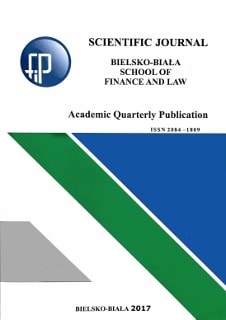Application of the European Arrest Warrant by the Polish Law Enforcement
Application of the European Arrest Warrant by the Polish Law Enforcement
Author(s): Tomasz SłapczyńskiSubject(s): Criminal Law, International Law
Published by: Wydawnictwo Wyższej Szkoły Finansów i Prawa w Bielsku-Białej
Keywords: European arrest warrant; EU law; criminal law; criminal proceedings; international cooperation
Summary/Abstract: The European Arrest Warrant (EAW) is undoubtedly the result of the introduction of cross-border simplified court proceedings. In its regulations, suspects and accused persons are transferred for the purpose of prosecuting offenses or executing a sentence of deprivation of liberty or a detention order involving the deprivation of liberty. A European arrest warrant issued by a judicial authority of a Member State is valid throughout the territory of the European Union. The beginning of its application in Poland dates from 1st January 2004. It replaced the extradition procedure, which was previously applied by the member states of the Union. The mechanism of the EAW is based on the principle of mutual recognition of judicial decisions and is applied in all EU Member States. It is based on the principle of direct contact between judicial authorities. Authorities using the warrant are obliged to respect the procedural rights of suspects and defendants, that is, the right to information, to a lawyer, to an interpreter, etc.
Journal: Zeszyty Naukowe Wyższej Szkoły Finansów i Prawa w Bielsku-Białej
- Issue Year: 22/2018
- Issue No: 4
- Page Range: 53-58
- Page Count: 6
- Language: English

